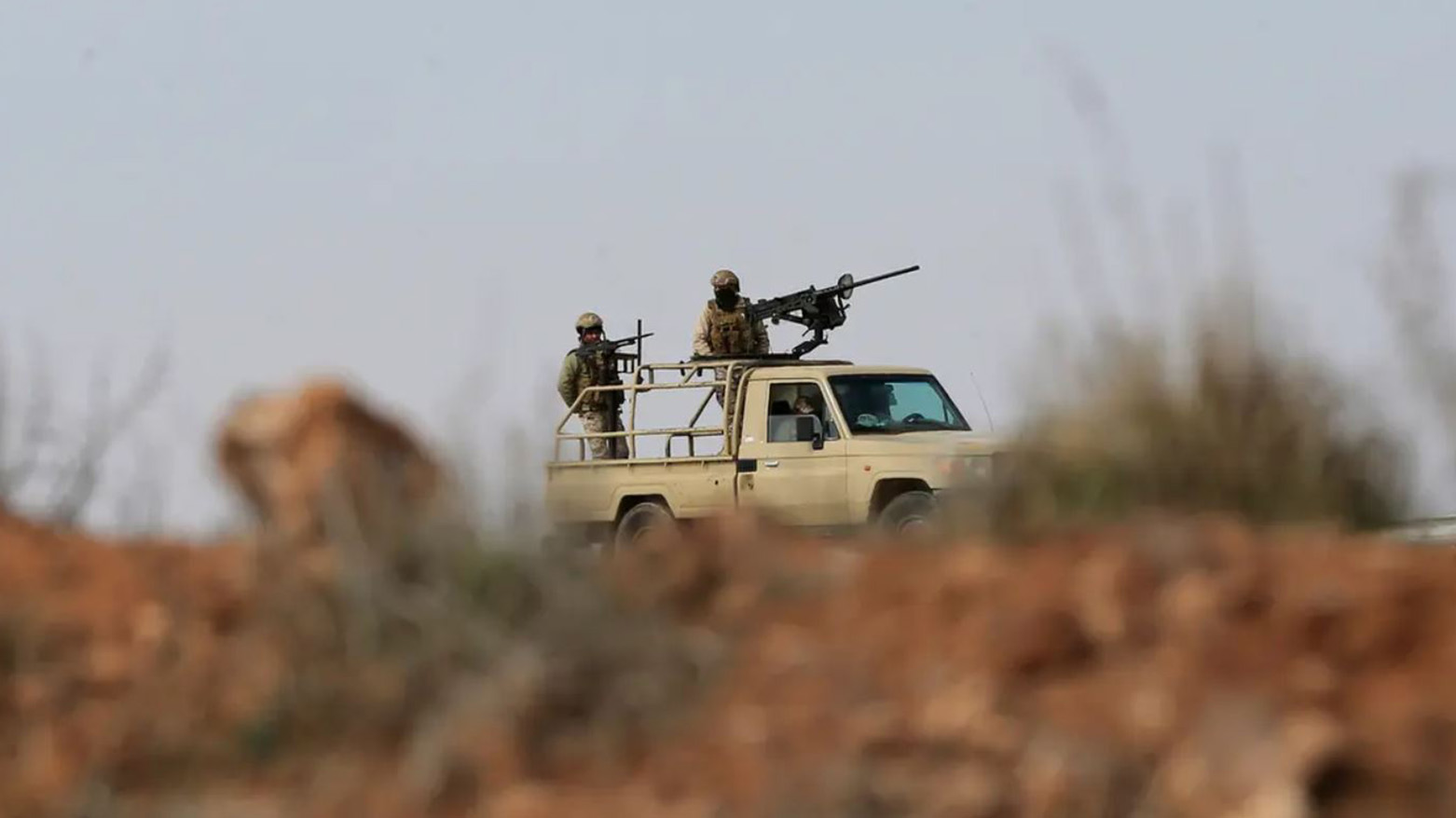Jordan steps up airstrikes on drug smugglers in Syria
The drug dealer was killed in Melh village in the south-eastern countryside of Syria’s Al-Suwaidaa, bringing the total death toll to three persons.

ERBIL (Kurdistan24) – The UK-based Syrian Observatory for Human Rights (SOHR) on Tuesday reported that one suspect accused of dealing drugs was killed in an airstrike by the Jordanian Army near the Jordanian-Syrian border.
The suspect was killed in the village of Melh in the southeastern countryside of Syria’s Al-Suweida Governorate, near the Jordanian-Syrian border. Also, two civilians were allegedly killed in the same strike.
Earlier on Jan. 7, five smugglers were killed in clashes with the Jordanian Army near the same border, the SOHR reported at the time.
During the operation, large amounts of narcotics, estimated to be 627,000 tablets of captagon and 3,439 packs of hashish, were confiscated.
Moreover, on Jan. 6 a civilian was reportedly killed after Jordanian aircraft targeted suspected drug dealers in the southern countryside of Al-Suwaidaa.
Arab News reported in October that Jordan’s rapprochement with Syria stopped due to the Syrian Government’s inability to stop drug smuggling out of the country.
Security operations by Jordan have been a recurring theme on the border, as last year, the Jordanian forces also targeted drug smugglers across the border.
The border between the two countries has been an essential route for smugglers to get their narcotics to the Gulf countries, where their largest consumer base is located in the region.
Mohammed Abu Dalhoum, the Co-Founder and President of MENAACTION, in a post on the social media platform X, stated that supporting Jordan’s border security is a necessity for regional security.
He warned that the trafficking of drugs and arms threaten regional security, not just Jordan’s, “especially with the increased presence of the heavily armed, well-funded and inherently expansive drug cartels and armed militias in Syria and Iraq,” he said.
Syria is a major producer of Captagon, a stimulant closely related to methamphetamine, although the chemical composition of the drug can vary wildly depending on the manufacturer. Authorities in the Kurdistan Region and Iraq have regularly seized large quantities of the drug.
Read More: U.S. Sanctions Cousins of Syrian President, Lebanese Associates for Drug Trafficking
The UK and US last year sanctioned Syrian Government and Lebanese associates for being involved in the Captagon trade, and in June last year, the US announced the creation of a global alliance against synthetic drugs.
Scott Lucas, the Professor of International Politics at University College Dublin's Clinton Institute and founding editor of EA WorldView, told Kurdistan24 that one condition of the Assad regime “coming in from the cold,” with Arab League members that broke relations with Damascus over the violent suppression of the Syrian uprising that erupted in 2011, “was some type of control being established over the Captagon trade.”
Professor Lucas added that the drug trade has been destabilizing for a number of Arab countries, especially Jordan, that has attempted to militarily stop the drug smuggling trade from Syria.
“For months, there have been skirmishes along the border. There have been attempts by the Jordanians to try to intercept smugglers coming across. The reason why we have had high visibility raids in the past week is because those skirmishes have turned into clashes.”
Professor Lucas said while there is a link between the Syrian Government and drug operations, it is unlikely that Syrian officials or military commanders will be targeted. However, he did not rule out that leaders of militias in the drug trade “could be targeted in the future.”
Caroline Rose, Director of the Captagon Project at the New Lines Institute and professor at Georgetown University, told Kurdistan24 that the Jordanian strikes come amidst a serious uptick in “trafficking of illicit drugs like captagon and crystal meth, in addition to illicit arms, along the Syrian-Jordanian border, as smugglers from Syria seek to take advantage of poor and wintery weather conditions.”
She added that Jordan previously attempted dialogue and limited rapprochement with the Damacsus —a suspected agent in the captagon trade—as a way to try and limit the trade’s scope.
However, with these tactics only having achieved limited results, “Jordan is pursuing smuggling networks in Syria independently through targeted strikes in southern provinces, using intelligence to identify both trafficking and production networks.”
Editing by Dastan Muwaffaq